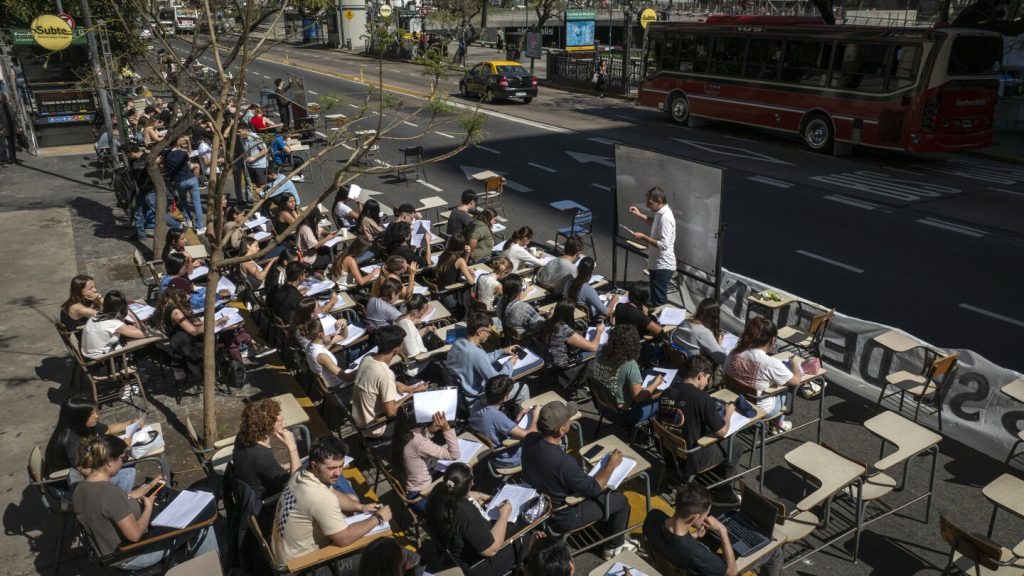Argentina’s right-wing President Javier Milei has implemented austerity measures to eliminate the country’s deficits, including cutting the public payroll, reducing subsidies, and keeping state worker salaries low. While these measures have led to widespread misery, the country’s left-wing opposition is in disarray, preventing the type of social unrest typically seen during economic crises. However, Milei’s recent veto of a bill to increase university budgets has sparked protests, with teachers and students demanding higher salaries and better working conditions.
The protests in Argentina have been escalating over the past month, with students taking over college campuses and staging mass demonstrations. Teachers and non-teaching staff at public universities are demanding pay raises to offset the high inflation rate, which has significantly reduced their purchasing power. Milei’s government has offered a meager pay raise of 6.8%, which has been rejected by unions and universities. The vetoed bill would have increased staff salaries to keep up with inflation, but Milei is determined to maintain budget balance and has vetoed other spending measures as well.
Despite Milei’s efforts to reduce inflation and stabilize the economy, poverty rates in Argentina have risen to over 50%. The budget shortfall in the public university system is causing significant challenges, with researchers reporting deteriorating living conditions and mass resignations among teaching staff. Milei’s government has come under criticism for prioritizing budget balance over the needs of public education, with students and professors accusing him of attacking the philosophy of free education in the country.
Milei has defended his actions by labeling universities as leftist indoctrination centers and calling for more financial transparency. He has also revived a proposal to charge tuition for foreign non-residents, a controversial move that has sparked further outrage among students and academics. Critics argue that Milei’s actions are undermining the longstanding tradition of free public education in Argentina and risking the future of the country’s universities.
The protests against Milei’s government have drawn a diverse range of participants, including retirees, doctors, artists, scientists, and pilots, all affected by the austerity measures and budget cuts. The student-led movement has gained momentum and support from various sectors of Argentine society, posing a potential threat to Milei’s administration. While some analysts believe the protests are damaging but not yet life-threatening for Milei, the future of the demonstrations and their impact on the government remain uncertain.
The ongoing protests and demonstrations in Argentina highlight the growing discontent with Milei’s austerity measures and the government’s handling of the economic crisis. As tensions rise and more sectors of society join the movement, the future of Argentina’s public education system and the country’s political landscape hang in the balance. Whether the protests will lead to meaningful change or further polarization in Argentine society remains to be seen.















